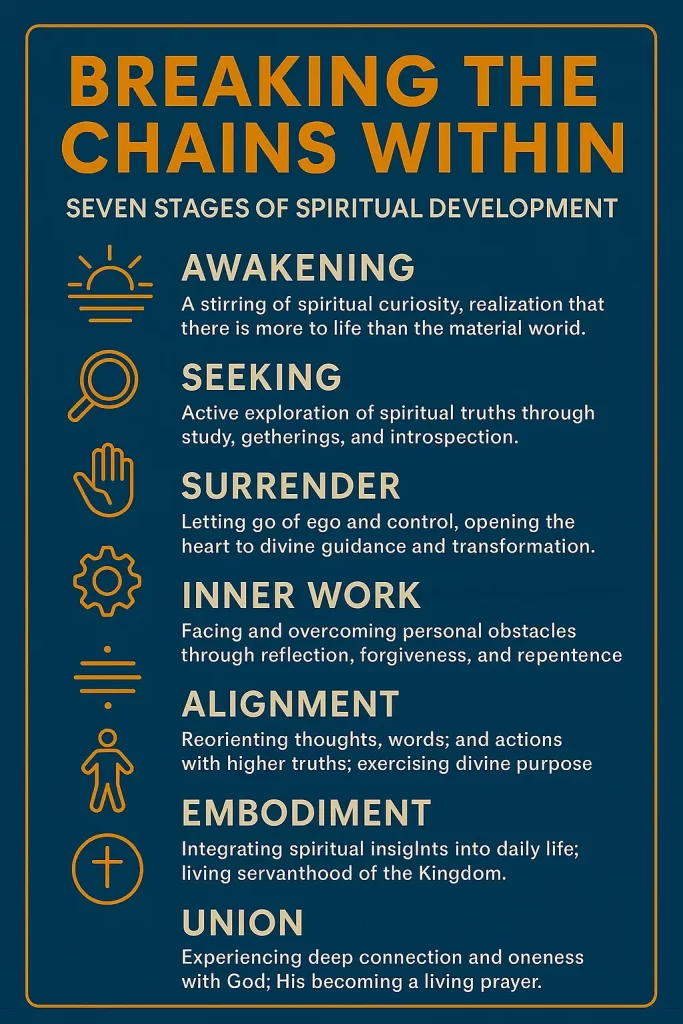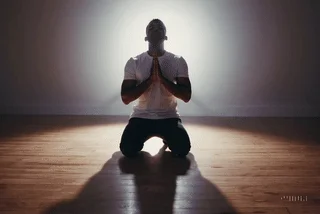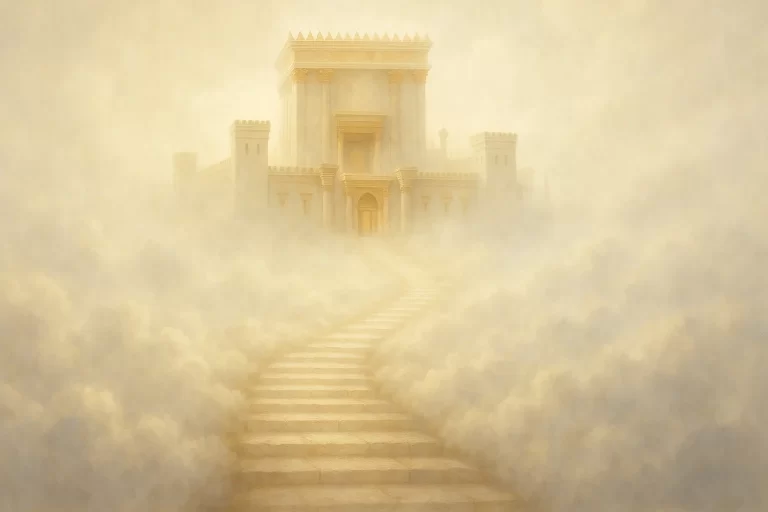Breaking the Chains Within: Overcoming Obstacles to Spiritual Development

Since the earliest days of human history, the great sages, prophets, and wise men have echoed a single truth: man is unfinished. Unlike the animals, who are born largely complete for their roles, humanity comes into the world as raw potential. Yet—and this is the rub—nature only takes us so far. After a certain point, spiritual development becomes an intentional act. Growth is no longer automatic. It requires effort. And that’s where most falter.
Today, as ever, the inner path is littered with hazards. But knowing the enemy gives us the upper hand. Here are the timeless obstacles to spiritual development—and the tested solutions that can overcome them.
1. The State of Man: The Incomplete Being
Problem:
We live below our legitimate level. Nature stops short in its task. We deceive ourselves constantly, pretending we are more conscious, more capable than we truly are. Ignorance and weakness reign. We imagine we can “do,” but as Christ Himself warned, “Without me, ye can do nothing.” (John 15:5).
Solution:
Begin with self-knowledge. Admit your fragmented, half-built condition. Locate your personal weaknesses. Accept that real change starts within. As the Desert Fathers counseled, “If you would be healed, first admit you are sick.”
2. Sleep and Mechanicalness: The Waking Sleep
Problem:
The average man sleeps while awake. Our thoughts, actions, even emotions operate on mechanical grooves, set by past conditioning and inertia. We possess not one will, but thousands of conflicting, petty wills.
Solution:
Wake up. Practice self-remembering: “Am I conscious or not?” Watch your mechanical behaviors without condemnation. As the old saying goes, “The unexamined life is not worth living.” Neither is it worth repeating.
3. The False Personality and Ego
Problem:
The ordinary ego—our “I”—is a clever mask. It protects itself at all costs, using pride, arrogance, and even our so-called virtues. It identifies with our opinions, memories, and desires. Thus, it blocks the light of higher consciousness.
Solution:
Make personality passive. Observe it without identifying. When negative emotions flare, remind yourself, “This is not the true I.” In time, the false self loses power. As John the Baptist said, “He must increase, but I must decrease.” (John 3:30)

Infographic: Seven Stages of Spiritual Development
4. Multiplicity and Inner Disharmony
Problem:
Man is a walking civil war. Many “I’s” battle for control—one wants peace, another revenge; one seeks wisdom, another comfort. This disharmony prevents true will.
Solution:
Observe your contradictions. Don’t judge—simply notice. Over time, this self-observation begins the process of unifying the fragmented self.
5. Buffers: The Psychological Crutches
Problem:
Buffers protect us from seeing painful truths about ourselves. They also block growth. They’re like old bandages that prevent wounds from healing properly.
Solution:
Expose the contradictions. Sincerely examine your thoughts, words, and actions. Where you find buffers, gently but persistently dismantle them.
6. Negative Emotions
Problem:
Negative emotions—fear, anger, self-pity—leak spiritual energy. Over time, they become habitual, mechanical, and corrosive.
Solution:
Study and stop them. Realize these emotions serve no useful purpose. When they arise, do not identify. As the Psalms say, “Cease from anger, and forsake wrath.” (Psalm 37:8)
7. Identification and Inner Considering
Problem:
We constantly identify—with our moods, roles, thoughts. Inner considering keeps us self-centered and hypersensitive, always concerned with how things affect me.
Solution:
Dis-identify. Remember you are not your passing states. Shift focus outward—practice external considering, empathy, and service to others. Self-forgetfulness is a door to higher awareness.
8. Imagination and Formatory Thinking
Problem:
Idle imagination invents flattering fictions about ourselves and others. Formatory thinking—rigid, automatic thought patterns—keeps us stuck in ruts.
Solution:
Struggle against imagination. Use conscious, purposeful thought. Where thought cannot reach, learn to quiet the mind and rest in awareness and stillness.
9. Fear
Problem:
Fear—especially the fear of change, emptiness, and losing control—paralyzes development.
Solution:
Face fear honestly. Trust that what is real cannot be harmed. “Perfect love casteth out fear.” (1 John 4:18)
10. Resistance
Problem:
Resistance arises as bodily tension, mental opposition, and emotional rigidity whenever we try to change.
Solution:
Notice resistance but don’t wrestle with it. Observe, breathe, and persist gently. As the Tao Te Ching says, “Water overcomes rock not by force, but by persistence.”
11. Lack of Openness
Problem:
We resist surrendering to higher forces. The “I” closes itself off, fearing death of the old self.
Solution:
Accept the necessary death of the old to be reborn. “Unless a grain of wheat falls into the earth and dies, it remains alone; but if it dies, it bears much fruit.” (John 12:24)
12. Judgment and Criticism
Problem:
Judging ourselves or others distorts observation and freezes growth. Criticism feeds the false self.
Solution:
Observe without judgment. Cultivate compassionate, non-critical awareness. As Christ taught, “Judge not, that ye be not judged.” (Matthew 7:1)
13. Looking Outside
Problem:
We seek answers in external things—possessions, status, intellectual theories.
Solution:
Turn within. “The kingdom of God is within you.” (Luke 17:21) Stillness and inward listening reveal what no outer teacher can give.
The Eternal Solutions
While the problems are ancient, so are the remedies. Let’s recap the master keys:
- Self-Observation: See yourself without lying or flattery.
- Self-Remembering: Awaken repeatedly during the day.
- Non-Identification: Disengage from mechanical thoughts, emotions, and roles.
- Inner Stillness: Cease fighting and struggling—listen in the silence.
- Directed Thought: Focus your mind on purpose, not automatic worry or fantasy.
- Emotional Mastery: Study and stop negative emotions before they become habits.
- Letting Go: Resist not. Allow the old self to die so the new may live.
- Service: Shift from self-centeredness to service and love.
Above all—remember: spiritual maturity does not come by accident. It must be willed, cultivated, and sustained.
In the End: Rise
Spiritual growth and development is a battle—not against the world, not against others, but against the inner inertia, the false personality, and the sleep of mechanical existence. And it is also a return—to the unity, peace, and power that was always within you, waiting.
As Paul wrote, “Awake, thou that sleepest, and arise from the dead, and Christ shall give thee light.” (Ephesians 5:14)
That command still rings true today. Wake up. Rise. Become what you were created to be.



